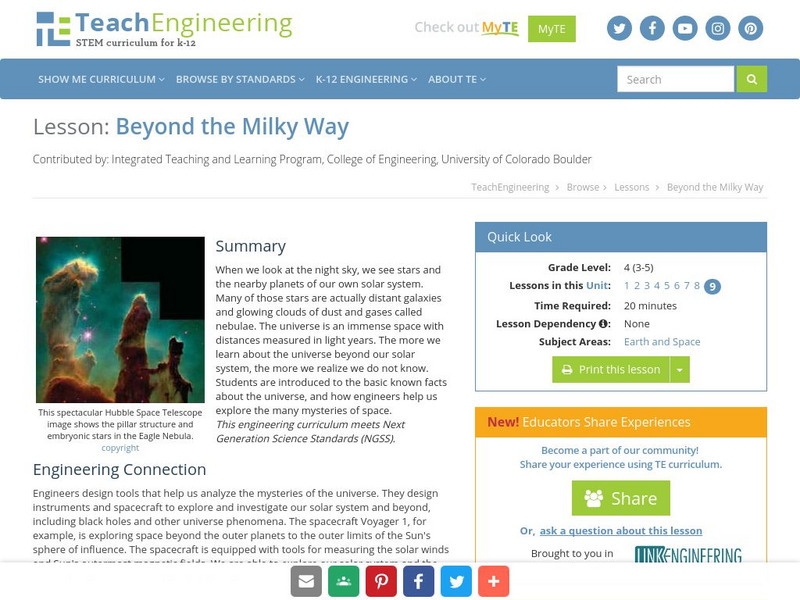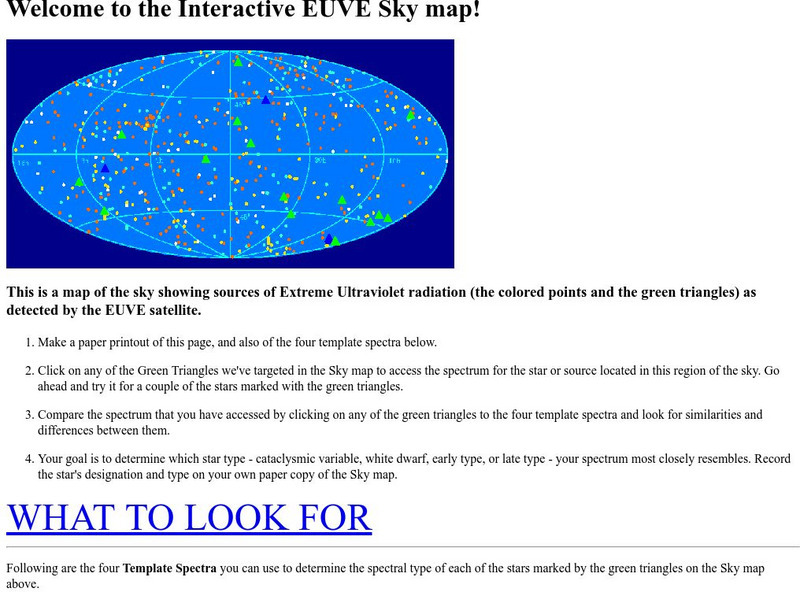Science Buddies
Science Buddies: Using a Digital Camera to Measure Skyglow
This is a great project for someone that is interested in both stargazing and photography. Bright city lights and even the light of the full moon obscure the dimmest stars, which can make identifying constellations more difficult. This...
TeachEngineering
Teach Engineering: Beyond the Milky Way
When we look at the night sky, we see stars and the nearby planets of our own solar system. Many of those stars are actually distant galaxies and glowing clouds of dust and gases called nebulae. The universe is an immense space with...
University of California
Interactive Extreme Ultraviolet Skymap
A map showing a view of the night sky is given; sources of extreme ultraviolet light are marked. Visitors analyze the spectrum from these parts of the sky and attempt to determine which star type the spectrum most closely resembles.
PBS
Pbs Teachers: Voyage to the Mystery Moon
Observe the night sky and speculate the distance between the Earth and its moon and Saturn and its moon. Explore how scientists have used robots to learn about celestial bodies, and conduct research about one of Saturn's moons.





